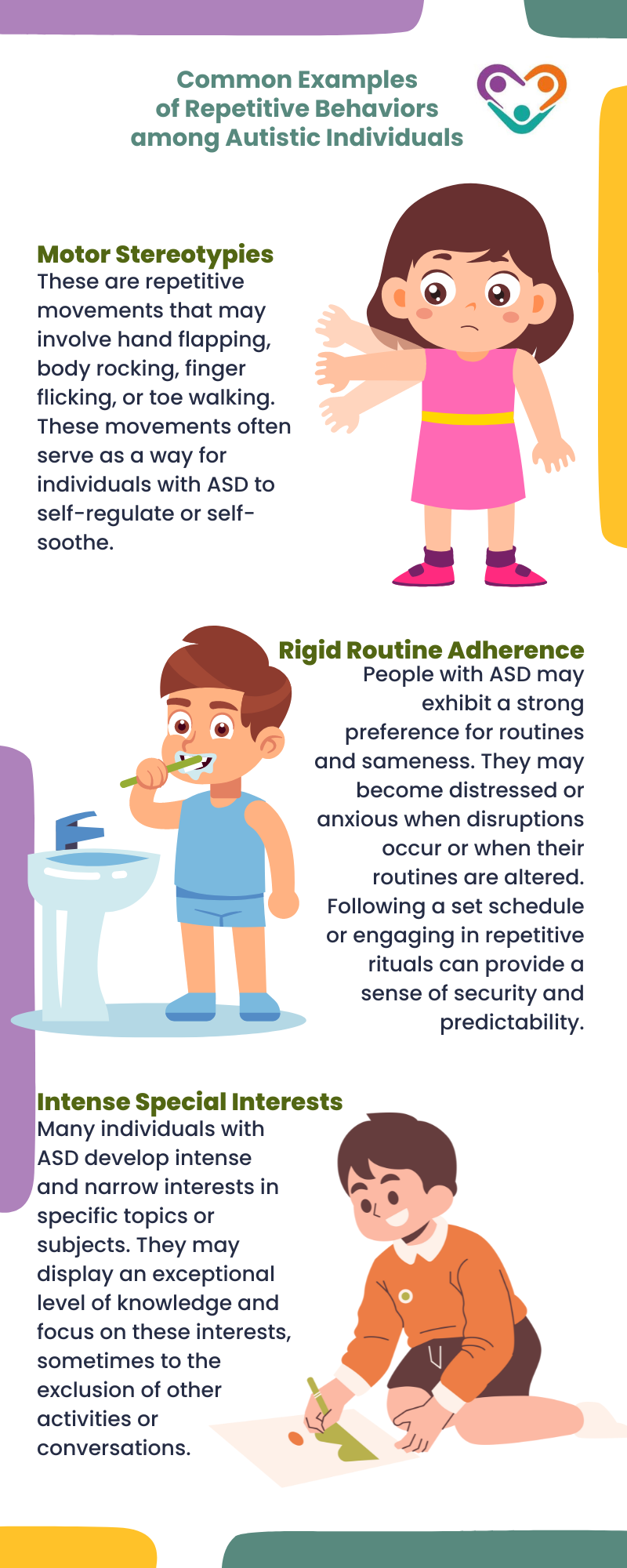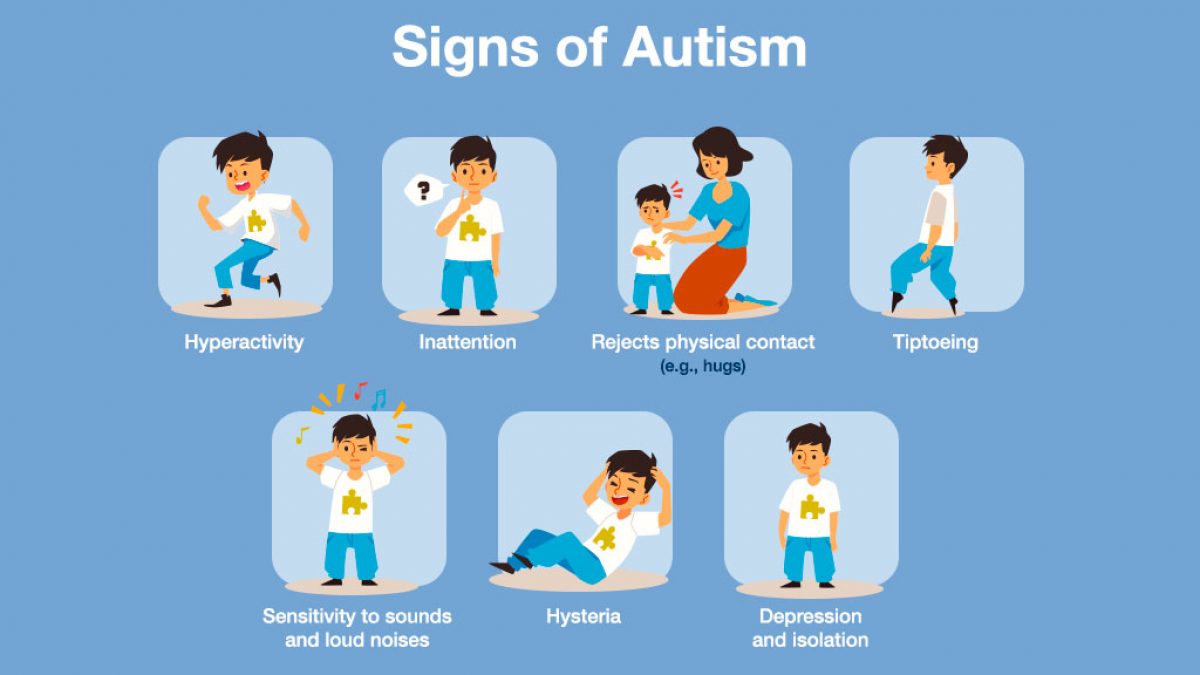Key Signs and Signs And Symptoms to Identify in People With Behavior Autism
When you come across somebody with behavior autism, recognizing essential indications and symptoms is vital. You may discover challenges in social interactions and interaction, along with a solid requirement for routines. In addition, sensory level of sensitivities can cause frustrating experiences. Comprehending these characteristics can enhance your assistance and treatments, however there's more to uncover concerning exactly how these behaviors show up in day-to-day circumstances. Allow's discover what these signs actually resemble.
Obstacles in Social Communications
When you communicate with somebody on the autism spectrum, you may see they struggle with social hints and interaction. These challenges can make social communications really feel overwhelming for them.
In addition, you may discover that they favor routines and familiar setups, which can restrict their readiness to participate in new social scenarios. When they do engage, they may chat concerning their rate of interests in great detail without seeing if you're interested. This can cause prejudiced discussions that leave you really feeling disconnected. Recognizing these challenges can help you come close to communications with empathy and patience, cultivating a more comfortable setting for both of you.
Problem With Verbal and Non-Verbal Communication

Non-verbal communication can be even extra tough. You might see an absence of eye call or minimal use of gestures, which can make interactions really feel unpleasant. Faces might not always straighten with the discussion, resulting in complication regarding their feelings. Acknowledging these indications is crucial, as it assists you better assistance and engage with people on the autism spectrum. By recognizing their interaction challenges, you can promote extra meaningful links and provide a much more encouraging setting.
Recurring Habits and Routines
Communication obstacles frequently accompany various other indicators of autism, such as repeated habits and a strong choice for routines. You may observe that people with autism usually take part in particular, repetitive actions, like hand-flapping, rocking, or duplicating expressions. These behaviors can provide convenience and a sense of control in a typically overwhelming globe.
Routines are just as crucial; numerous people flourish when they adhere to an organized schedule. You might locate that modifications to these routines can cause significant distress. If they have a daily ritual of consuming morning meal at a particular time or adhering to a particular course to school, any type of disturbance can cause stress and anxiety.
Identifying these patterns aids you understand their habits and give assistance. By accommodating their requirement for regular and permitting recurring actions, you can create a much more comfortable atmosphere that relieves their challenges.
Sensory Sensitivities

Usual Sensory Triggers
Sensory level of sensitivities can considerably influence day-to-day life for people with autism, as particular stimulations typically trigger overwhelming reactions. Typical sensory triggers include loud noises, bright lights, and strong smells. Recognizing these triggers can help you handle your environment much better.
Behavior Responses Described
Recognizing your behavioral feedbacks to sensory level of sensitivities is essential, as they frequently reveal how you connect with the world. You might see that specific noises, lights, or textures bewilder you, bring about stress and anxiety or discomfort. When confronted with these stimulations, you might take out, cover your ears, and even react boldy. These feedbacks aren't simply quirks; they're your way of dealing with overstimulation. You may likewise find on your own looking for certain sensory experiences, like deep pressure or silent atmospheres, to aid ground yourself. Identifying these patterns helps you recognize your needs far better and can direct just how you communicate them to others. By recognizing your sensory level of sensitivities, you can work in the direction of creating a setting that feels a lot more comfortable and workable for you.
Coping Approaches Overview
Recognizing your sensory sensitivities is just the very first step; now it's time to check out coping methods that can help you take care of those experiences properly. Beginning by producing a sensory toolkit tailored to your requirements. Establishing an organized routine can additionally supply predictability, reducing anxiousness around sensory overload.
Restricted Passions and Focus
While several individuals create a vast array of interests, those with autism usually demonstrate limited rate sites of interests and an extreme focus on details topics. You could discover that somebody with autism can invest hours delving into their favored subject, whether it's a specific kind of train, a particular flick, or a scientific idea. This extreme emphasis isn't just a pastime; it can come to be a central part of their identification and social communications.
You may discover that conversations revolve around these interests, and they may struggle to engage in wider subjects. By recognizing and recognizing these restricted rate of interests, you can promote a supportive environment where they really feel valued and recognized, permitting for even more purposeful connections and communications.
Psychological Law Troubles
Individuals with autism frequently deal with challenges in emotional guideline, which can be influenced by their intense emphasis on details rate of interests. You could discover that when an individual is deeply taken part in a favored activity, they can experience solid feelings, whether excitement or aggravation. When points do not go as prepared., this intensity often makes it hard for them to change gears or handle their feelings - Autism Therapist.

Irregularity in Developing Landmarks
When it comes to developmental milestones, you'll notice that people with autism commonly reveal a broad range of variability. You could see a kid excel in language abilities yet battle with social communications.
It's essential to acknowledge that each individual's trip is distinct. Observing these patterns can help you comprehend their strengths and requires better.
Often Asked Questions
Exactly How Is Autism Diagnosed in Children and Grownups?
To diagnose autism in adults and youngsters, professionals review habits, interaction abilities, and social interactions. If an individual meets the requirements for autism range problem., they typically make use of standard tests, interviews, and observations to establish.
Exist Different Sorts Of Autism Spectrum Disorders?
Yes, there are different kinds of autism range problems, consisting of Asperger's syndrome and pervasive developmental disorder-not otherwise specified. Each type varies in intensity and features, so comprehending these differences can help you better support individuals with autism.
What Therapies Are Efficient for Individuals With Autism?
When taking into consideration reliable treatments for people with autism, you'll locate alternatives like Applied Actions Evaluation, speech treatment, and occupational therapy. Each approach can help improve communication, social abilities, and day-to-day operating customized to specific demands.
Can People With Autism Lead Independent Lives?
Yes, people with autism can lead independent lives. With the appropriate assistance, skills training, and resources, you can aid them establish self-sufficiency, take redirected here care of daily tasks, and grow in various settings, cultivating their freedom.
Just How Can Family Members Assistance Liked Ones With Autism?
You can support your loved ones with autism by developing an organized setting, motivating their rate of interests, practicing patience, cultivating interaction, and promoting social skills. Commemorate their success, regardless of exactly how little, and build an encouraging area.
Although lots of people on the autism spectrum can use and comprehend language, they typically face substantial difficulties with both non-verbal and verbal interaction. Acknowledging these signs is necessary, as it helps you far better support and involve with individuals on the autism spectrum. You could discover that people with autism typically engage in specific, repeated activities, index like hand-flapping, rocking, or duplicating phrases.Sensory level of sensitivities can significantly influence daily life for people with autism, as certain stimuli often activate overwhelming reactions.When it comes to developing milestones, you'll discover that people with autism often show a vast range of variability.